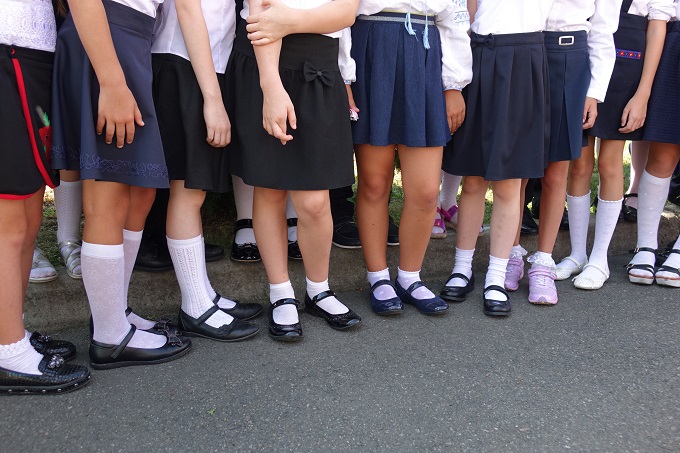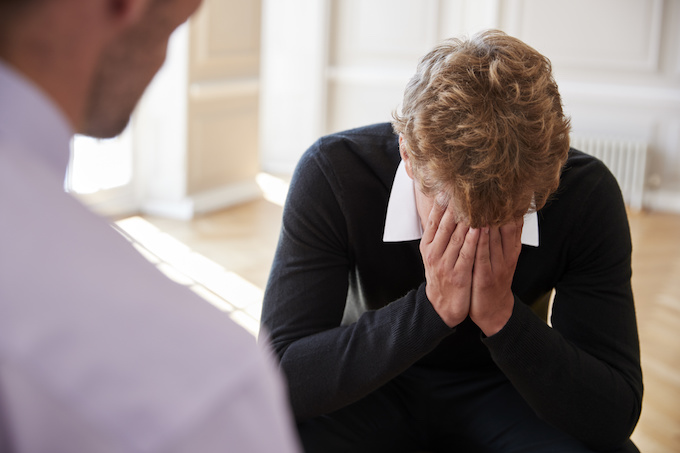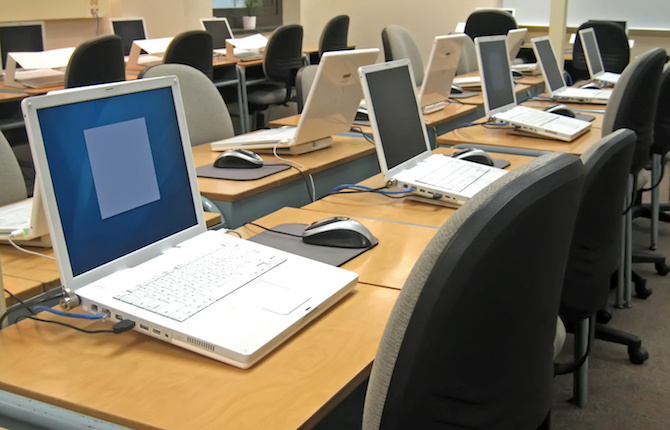EXCLUSIVE: Survivors and experts blame negligence in sex-ed for assault
Failures in sexual education in schools have significant consequences, as has been evident these past few months.

Chanel Contos, Brittany Higgins, and Grace Tame faced the price of these failures.
These three women could have led very different lives if sex-ed was diverse and inclusive.
Sexuality education isn’t easy; it’s complex and ever evolving. However, its current failures are too huge to miss.
Read the full version of this article in our new Term 3 issue, available free here.
Deakin University Lecturer Claire Stonehouse said sexuality education in schools needs to be more explicit.
Professor Stonehouse is a Lecturer in Education and specialises in student health and well-being.
“Sexual education has improved in these recent years with students becoming more aware; however, it needs to include more explicit terms. Words related to private body parts shouldn’t be sugar coated anymore,” she said.
“The unclear curriculum added to parents refusing to teach kids about consent early on is a part of the problem.”
“They say things like ‘no don’t teach my kid that, or don’t use this word in classrooms’.”
Advocate for holistic sexuality education in schools, Chanel Contos, said she was taught about consent much later in her school life.
“In my school, students were taught about consent in Year 10. We were 15 when we were first taught that we need to take and give permission,” she said.
“And my school is supposed to be one of the good progressive ones.”
She launched a petition ‘Teach Us Consent’ earlier this year where women as old as 80 and as young as 13 have identified themselves as sexual assault survivors.
The petition has gone viral with over 6000 testimonies since late March this year.
Ms Contos grew up in Australia and is currently finishing her masters in London. She talked to School News Australia from her apartment in London.
She said the failures of sex-ed in Australian schools are glaring and her page is a direct product of these failures.
“I was sexually assaulted in school and I got to know last year that my friend was assaulted by the same man that assaulted me,” she said.
“We suddenly found out one day and we were just sitting, crying, shaking and being traumatised by it.”
“But here’s the thing, we didn’t know then that we were assaulted and the guy who did this to us didn’t know he had to ask. We weren’t taught consent or permission.”
“That is how the page came about. I realised schools need a better consent education.”
The page started as an Instagram poll, and soon Ms Contos realised her assault isn’t an isolated incident. Thousands of girls from schools in Australia have submitted their testimony.
“Sexual assault isn’t rare, like we all thought. We know now it isn’t,” Ms Contos said.
“My own sexual assault experience could have been preventable. It was easily avoidable by educating me and him.”
The heartbreaking testimonies come with a trigger warning and tell its reader that sexual assault isn’t uncommon; speaking up about it is.
“The more I think about it, these repressed memories (of sexual assault) come back, I’m so thankful we can finally speak about it,” one testimony reads.
Failures of sex-ed
Despite improved sex-ed recently, Ms Stonehouse said that regarding sexuality education, the Australian government needs to do more. She added, the recent milkshake smearing advertisement is a step back to the process.
She criticised the advert and said it was regressive and embarrassing.
The advertisement that now has been taken down is considered derogatory and confusing by rape prevention campaigners.
The outlandish video features a woman smearing a milkshake all over a man’s face. The video, which is supposed to inform students of sex education, fails to mention sex or consent.
Professor Stonehouse said the advertisement is a ‘big fail’.
“As a Year 10 student, I would be offended. The government is trying to push an analogy that doesn’t even make sense,” she said.
“It is bizarre and confusing.”
Professor Stonehouse believes the $3.7 million campaign that has received fierce backlash from experts and students alike could have been better with an expert’s guidance.
The government has spent millions of dollars in the past two years on the campaign; however, as far as I know, none of the experts were contacted,” she said.
“The government wasted money, and they didn’t use the existing resources.”
Talking about the advert, Ms Contos said, “it is insulting that the government believes that is the level of intelligence we have”.
“It just shows how disconnected they are. The ad is impractical and a major part of the problem.
“It puts ordering beverages and sexual assault on the same table. It is okay to compromise on drinks, not your body.
“But the issue doesn’t stop here, their website was equally problematic.”
The website used the phrase ‘moving the line’ instead of abuse which, Ms Contos believes, undermines the victims and survivors of abuse.
“Another phrase used on the website was, ‘It is okay to persuade them but don’t use force’ and that is wrong. They are not deciding on pizza that you have to convince someone, it’s a sexual act,” she said.
Sexuality education today
Justine Kiley-Scott, the co-founder of Sex Education Australia (SEA), has worked with over 100 schools in Australia, teaching students about sexuality education.
She said consent is not taught explicitly in schools because sexual assault is a “menaced and a sensitive topic”.
“The topic of rape culture, slut shaming and sexual assault hasn’t been tackled head-on,” she said.
“For that reason, there is misinformation about what consent is, how to give it and how it looks like, feels like and sounds like.”
“It isn’t just ‘no means no’, there’s reading body language and enthusiasm.”
She adds that she has noticed different responses from boys and girls while delivering the curriculum.
“When we are in a girls’ school, students often ask us if we are teaching consent to boys,” she said.
“They want to know if boys are being taught this as well because it is important that both the genders know equally about consent.
“In boys’ school we also go beyond and ad focus on what not to do and what is absolutely wrong.”
Brandon Friedman, the co-founder of Elephant Ed that conducts sexual education workshops in schools, has also noticed different reactions from the two genders.
“Boys tend to pull up a wall or a barrier rather than talking about it,” he said.
“Which is why our workshops make an effort to create a safe non-judgemental space for them to engage in conversations.”
“Whereas girls want to learn more, and they proactively engage in conversations.”
Mr Friedman said sexual education has changed over the years, and it is progressing. The workshops include the cultural and emotional aspects of sexual education rather than being confined to the traditional elements of physical health and the onset of puberty.
“For instance, we focus on the dramatisation of pornography. It degrades women and our workshops focus on teaching students the effects of such misinformation.”
Elephant Ed workshops also focus on consent. Mr Friedman says, “We talk about consent laws and legality.”
“We also go around consent and talk about gender and power balance in a relationship and victim-blaming.
The problem
Sexuality education in Australian schools is inconsistent across states. In addition, even though sex-ed is compulsory in schools, there is no fixed structure across schools in Australia.
A holistic approach to sexual education is not accessible to all students around Australia. The state government has set up guidelines that schools need to match; however, it still lacks accountability.
“The schools are told what to teach but not how to teach. It is open to interpretation and there is no accountability,” Professor Stonehouse said.
“Additionally, we need to develop education around respect in relationship.”
Ms Kiley-Scott believes teaching students more about respect in and for a relationship is vital.
“They need to know when they will be ready and they need to be taught about consent, which they will not find in mainstream media,” she said.
She said that students today can learn more about sexual activities on the internet, which can lead to misinformation.
“Students can easily access information on the internet through pornography and media, but here consent is not clarified.”
“These problems need addressing outside of the school campus by educating parents and teachers.”
How should it be?
Failures in sexuality education are also a result of systematic issues based on gender roles and stereotypes.
Ms Kiley-Scott said society needs to shift from policing to educating.
“Chanel Contos’s petition had lot of signatures not only because of school’s curriculum but also systematic errors,” she said.
“The schools should go beyond biology and talk about STD’s, condoms and consent.”
“The conversations should also focus on relationships being pleasurable with both sides being excited and happy about it.”
Professor Stonehouse said there are no standard guidelines to teach sexuality; some things should and should not be done.
“The right approach to take is evidence-based and acknowledging what is being talked about,” she said.
“The wrong way would be making fun of it and not being honest about it.”
“Kids are impressionable and not pitching the idea of sexuality education at the developmental stage is also wrong.”
“We also need a supportive government making uniform and informed curriculum for sexual education in schools across Australia.”
As a lecturer in education, she teaches her students, who are future educators, about sexuality education.
“All pre-service teachers need to be taught how to teach it and professional learning for in-service teachers is essential.”
Sexual Education must be inclusive, and responsibility lies on teachers and parents alike.







